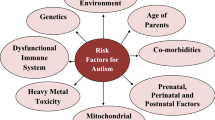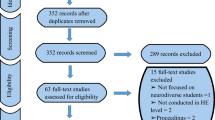Abstract
Objective
To describe the last 5 years' experience of Child Development Centre (CDC), Kerala Developmental Evaluation Clinic II for children between 2 and 10 y, referred for suspicion of developmental lag in the preschool years and scholastic difficulty in the primary classes with specific focus on developmental profile and the experience of the home based intervention package taught to the mothers.
Methods
A team of evaluators including developmental therapist, preschool teacher with special training in clinical child development, speech therapist, special educator, clinical psychologist and developmental pediatrician assessed all the children referred to CDC Kerala. Denver Developmental Screening Test (DDST-II), Vineland Social Maturity Scale (VSMS) and Intelligent Quotient (IQ) tests were administered to all children below 6 y and those above 6 with apparent developmental delay.
Results
Speech/delay (35.9 %), behavior problem (15.4 %), global delay/ intellectual disability (15.4 %), learning problem (10.9 %), pervasive developmental disorders (7.7 %), seizure disorder (1.7 %), hearing impairment (0.7 %), and visual impairment (0.7 %) were the clinical diagnosis by a developmental pediatrician. Each child with developmental problem was offered a home based intervention package consisting of developmental therapy and special education items, appropriate to the clinical diagnosis of the individual child and the same was taught to the mother.
Conclusions
The experience of conducting the developmental evaluation clinic for children between 2 and 10 y has shown that a team consisting of developmental therapist, speech therapist, preschool teacher, special educator, clinical child psychologist and developmental pediatrician, using appropriate test results of the child could make a clinical diagnosis good enough for providing early intervention therapy using a home based intervention package.
Similar content being viewed by others
References
Squires J, Nickel RE, Eisert D. Early detection of developmental problems: strategies for monitoring young children in the practice setting. J Dev Behav Pediatr. 1996;17:420–7.
Glascoe FP, Dworkin PH. Obstacles to effective developmental surveillance: errors in clinical reasoning. J Dev Behav Pediatr. 1993;14:344–9.
Glascoe FP. Early detection of developmental and behavioral problems. Pediatr Rev. 2000;21:272–9.
Bierman JM, Conor A, Vaggi M, Honzik MP. Pediatrician’s assessments of the intelligence of 2 year olds and their mental scores. Pediatrics. 1994;93:299–403.
Frankenburg WK, Dodds J, Archer P, Shapiro H, Bresnick B. The Denver II: a major revision and restandardization of the Denver developmental screening test. Pediatrics. 1992;89:91–7.
Bzoch KR, League R. Receptive-expressive emergent language scale. 1st ed. Gainseville: The Tree of Life Press; 1971.
Schopler E, Reichler RJ, DeVellis RF, Daly K. Toward objective classification of childhood autism: childhood autism rating scale (CARS). J Autism Dev Disord. 1980;10:91–103.
Darrah J, Redfern L, Maguire TO, Beaulne AP, Watt J. Intra-individual stability of rate of gross motor development in full term infants. Early Hum Dev. 1998;52:169–79.
Aylward GP. Conceptual issues in developmental screening and assessment. J Dev Behav Pediatr. 1997;18:340–9.
Acknowledgments
The authors gratefully acknowledge the cooperation and support received from staff of Child Development Centre, Kerala, specially Dr. G. Suresh Kumar, Registrar; Ms. Deepa N.R., PS to Director; Mr. N. Asokan, PA to Director; Ms. Suja S, Junior Programmer; CDC, Medical College, Thiruvananthapuram, in conduction of this study.
Conflict of Interest
None.
Source of Funding
This study is supported by Child Development Centre, Thiruvananthapuram.
Author information
Authors and Affiliations
Corresponding author
Appendix
Appendix
Rights and permissions
About this article
Cite this article
Nair, M.K.C., Lakshmi, M.A., Latha, S. et al. CDC Kerala 15: Developmental Evaluation Clinic (2–10 y) – Developmental Diagnosis and Use of Home Intervention Package. Indian J Pediatr 81 (Suppl 2), 142–150 (2014). https://doi.org/10.1007/s12098-014-1587-0
Received:
Accepted:
Published:
Issue Date:
DOI: https://doi.org/10.1007/s12098-014-1587-0




